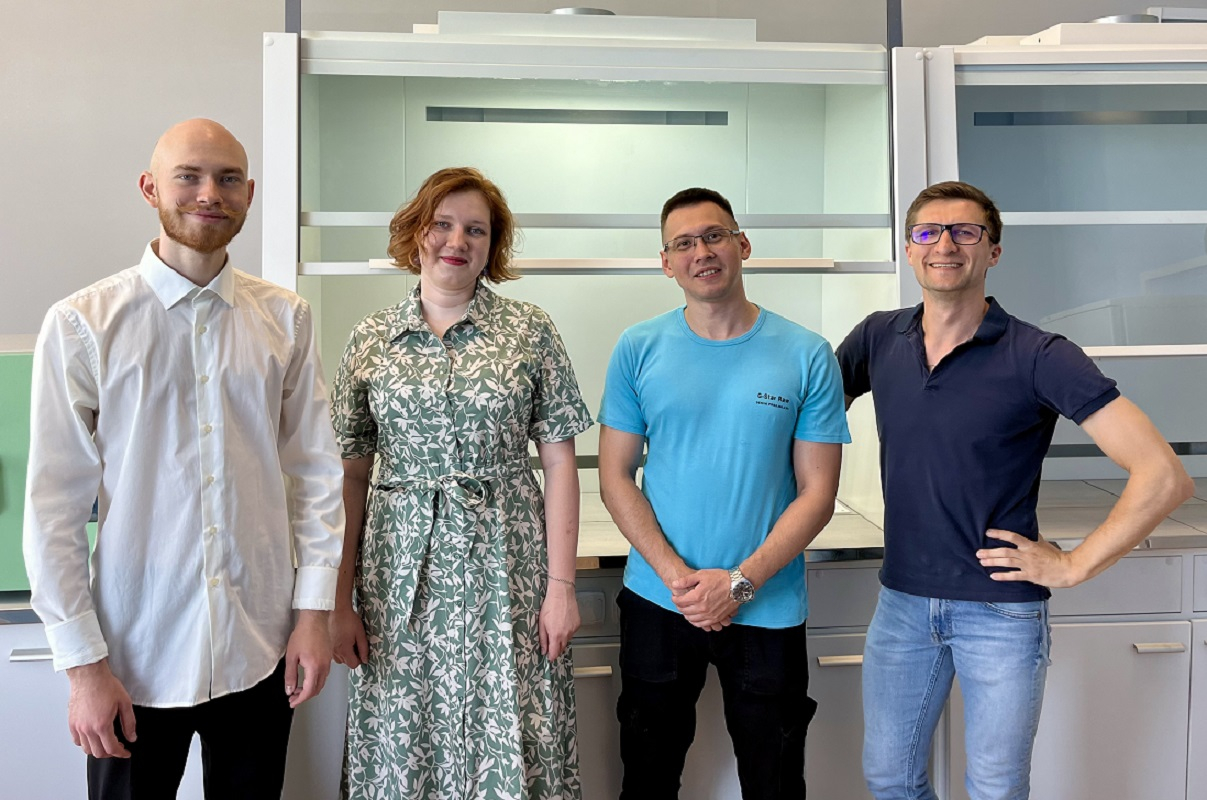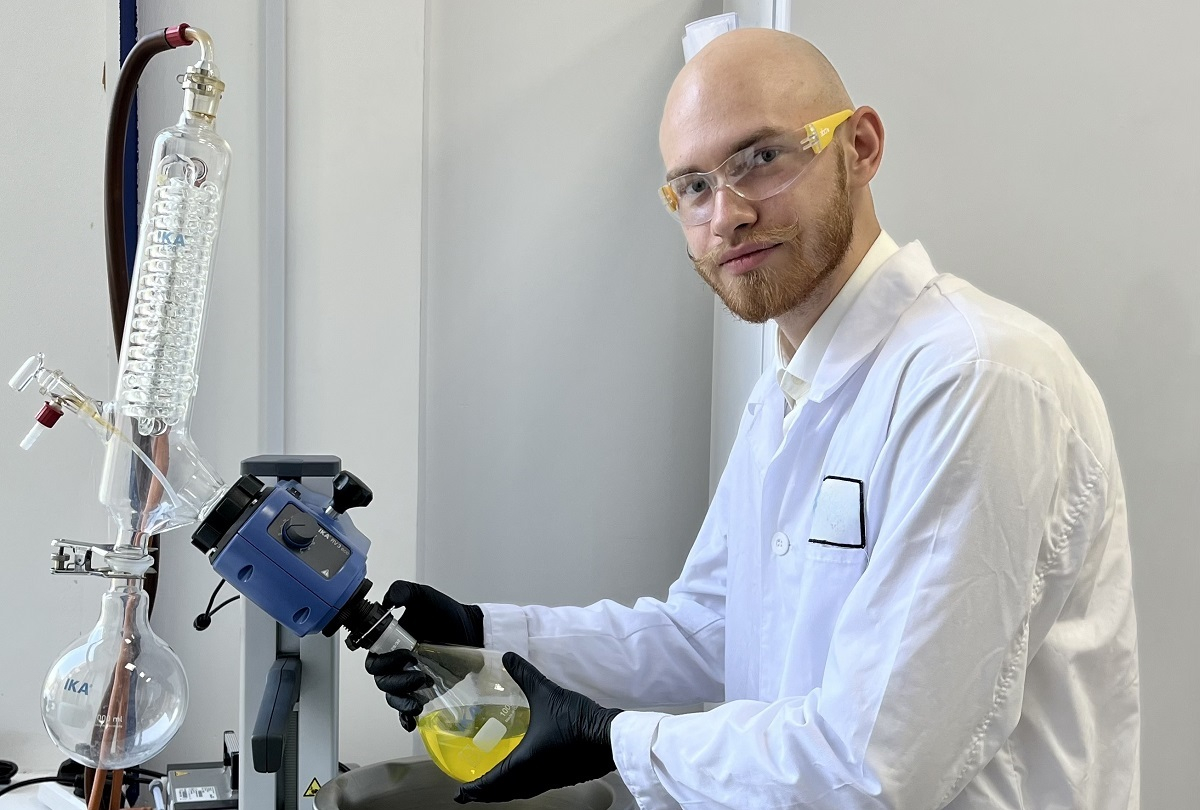Chemists from St Petersburg University: similar organic catalysts accelerate reactions in opposite ways
Researchers from St Petersburg University have studied the reaction characteristics of structurally similar organic catalysts based on the tellurium and the iodine atoms and found that the tellurium derivative reduces the entropy and enthalpy of activation. In contrast, the iodine derivative increases these key reaction characteristics.
Chemical reactions occur when particles collide to form a new substance. At the same time, it is important that the particles collide and orientate in the right way for the reaction to take place. Two parameters—the enthalpy and entropy of reaction activation—are responsible for the success of such an interaction.
The findings of the research supported by a grant from the Russian Science Foundation are published in the international scientific journal ChemCatChem.
The enthalpy indicates how much excess energy the particles must have in order for the reaction to take place. The smaller the value, the more particles have the necessary energy and the higher the probability of an efficient reaction. The entropy of the reaction in turn makes it possible to determine the probability of the particles colliding and orientating in the right way for the reaction to take place. The more structured the system, the lower the probability of a successful reaction, and thus the lower the entropy of activation of a reaction, the slower it proceeds.
A catalyst is a substance that speeds up a chemical reaction without taking part in it directly. To speed up the reaction, the catalyst must bind to at least one of the reactants. Since the process of forming one particle from two (the associate of catalyst and reactant from independently moving particles) implies ordering the system, it reduces the entropy and therefore the probability that the reaction will proceed. However, the reaction is still accelerated because the catalyst reduces the enthalpy.
The chemists from St Petersburg University have studied two types of organic catalysts and calculated how they affect the enthalpy and entropy of activation of a model chemical reaction. The study was carried out using organic catalysts containing the tellurium or iodine atoms. According to the authors of the paper, both catalysts had a similar structure and showed approximately the same activation ability.
Because of these similarities, we expected that the organocatalysts used would change the key properties of the reaction in roughly the same way. It turned out that the tellurium compounds led to a decrease in enthalpy: the system became more ordered, but with less excess energy.
Dmitrii Bolotin, the author of the study, Professor in the Department of Organic Chemistry at St Petersburg University
"At the same time, the iodine-based organocatalyst showed the opposite and therefore surprising result: the enthalpy and entropy of activation of the reaction increased significantly. This can be compared to cleaning a room, when after an attempt to tidy it, the room became even more disorderly than before," commented Dmitrii Bolotin, the author of the study, Professor in the Department of Organic Chemistry at St Petersburg University.
St Petersburg University chemists have previously created a new and more convenient for use in the production catalytic system of amine and organic iodine salt. The development allows research to be carried out in a more environmentally friendly way due to the absence of heavy metals. The researchers used equipment of the resource centres of the St Petersburg University Research Park: the Magnetic Resonance Research Centre; the Chemical Analysis and Materials Research Centre; and the Chemistry Educational Centre. The results obtained by the University chemists show that, on closer inspection, apparently similar results can be due to completely different processes, and that the organocatalysts under study have versatile properties, the understanding of which will make it possible to develop even more efficient and selective catalysts in future.
St Petersburg University, the oldest university in Russia, was founded on 28 January (8 February) 1724. This is the day when Peter the Great issued a decree establishing the University and the Russian Academy of Sciences. Today, St Petersburg University is an internationally recognised centre for education, research and culture. In 2024, St Petersburg University celebrates its 300th anniversary.
The plan of events during the celebration of the anniversary of the University was approved at the meeting of the Organising Committee for the celebration of St Petersburg University’s 300th anniversary. The meeting was chaired by Dmitry Chernyshenko, Deputy Prime Minister of the Russian Federation. Among the events are: the naming of a minor planet in honour of St Petersburg University; the issuance of bank cards with a special design; and the branding of the aircraft of the Rossiya Airlines to name just a few. To mark the 300th anniversary of St Petersburg University, a postage stamp depicting the Twelve Collegia building and the monument to Count Sergey Uvarov was issued.
By the decision of the Governor of St Petersburg Alexander Beglov, 2024 is a year of the 300th anniversary of St Petersburg University in St Petersburg. On the day of the University’s 300th anniversary torches were lit on the Rostral Columns on the Spit of Vasilyevsky Island. St Petersburg University flags were raised on the Palace Bridge. The city public transport was decorated with the University’s symbols. New tourist maps will feature the locations of the University buildings, with thematic and historical materials about the University placed nearby. During St Petersburg’s City Day celebrations in May 2024, St Petersburg University will be a participating venue. The traditional ‘Scarlet Sails Festival’ will also be dedicated to the anniversaries of St Petersburg University and the Russian Academy of Sciences. Additionally, the University has launched a website dedicated to the upcoming holiday. The website contains information about outstanding University staff, students, and alumni; scientific achievements; and details of events held as part of the celebration of the 300th anniversary of the University.



